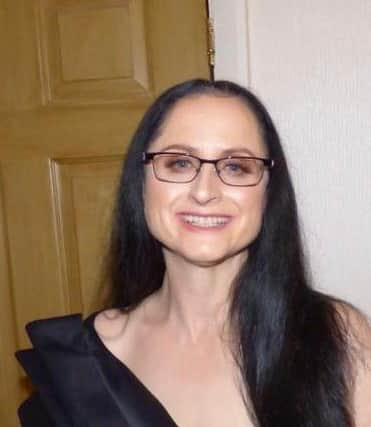'We have put our lives at risk for the greater good': Sheffield social worker and coronavirus survivor calls for public support
and live on Freeview channel 276
Rosie Meleady, 52, is a social worker from the Norfolk Park area of Sheffield
This is what she said about her time with coronavirus, and the importance of social workers at a time when potentially vulnerable people are in lockdown.
Advertisement
Hide AdAdvertisement
Hide Ad“Recently, I found myself sat on the sofa feeling acutely unwell and struggling to get my breath. I rang NHS 111 and was told the symptoms I was experiencing were likely to be COVID-19 and I should dial 999 if this worsened and someone would ring me back within six hours. Unless I was admitted to hospital there was no way of testing.


“Alone and frightened, I talked myself through each breath. What kept me going was focusing on the fact that I could not allow my daughter to come downstairs to find her mother dead. I felt I needed to not panic and everything would be all right. Waves of guilt coupled with anger crashed over me. I wasn’t expecting this to happen, I had been misinformed. The government said it was older people over 70 and those with underlying health conditions such as asthma who were at risk. I am neither of these.
“I later found out I was not alone; other social workers were sadly in the same position. In the lack of clear guidance, we at first continued to see people face-to-face. There were no preventative measures taken or disaster management plan in place in preparation for a situation such as this. How could this be, particularly when so many scientists have long warned about a global pandemic?
“Social workers have been unfairly represented and vilified by the media and, to a greater or lesser extent by politicians, depending on the government of the day. Yet we are at the forefront of health and social care provision. A selfless desire to help individuals and communities is what motivates us and brings us into this profession.
Advertisement
Hide AdAdvertisement
Hide Ad“Our values make us good reflective team players. Quietly and with compassion, we get on with our work - an unseen profession putting others first and sometimes ourselves at risk. We take significant steps in making society safer, we challenge inequality, promote the right to self-determination while balancing out the risks posed to individuals and others.
“We stand up for human rights and speak up for what is right - not what is easy - which often makes us a target for criticism.
“We support children and their families by coordinating complex and risky assessments and interventions. We deliver packages of care, we enable and support the most vulnerable people in society.
“In wake of this pandemic, there has been a shift in public perception for what has been termed ‘low skilled’ and poorly paid keyworkers. The public has shown their support through ‘clap for carers’ and vocalised their outrage at workers not having access to personal protective equipment and organisations playing Russian Roulette with lives.
Advertisement
Hide AdAdvertisement
Hide Ad“But this has mainly focused on doctors and nurses within the NHS. Will public perception shift to recognise the value of other professionals also supporting their communities, such as social workers?
“I sincerely hope so. I hope this situation has highlighted the value we bring to society, how we are in the job to help people and are not the stereotypes the media and others sometimes portray.
“We have an opportunity now more than ever to put forward and promote our value and worth to society. Leaders in our profession must make a strong commitment to represent our community in this regard and to stand up and protect its workers.
“And instead of people asking what does social work bring to the table, they might change their view and ask where would we be without social workers?
Advertisement
Hide AdAdvertisement
Hide Ad“Thankfully I am an awful lot better now, though still symptomatic. But there are thousands of others like me within our profession who have put their lives and that of their families at risk for the greater good.
“Hopefully, that will at last be recognised.”
The lockdown put in place to help prevent the spread of COVID-19 means it is a particularly difficult time to be a social worker, according to the British Association for Social Workers (BASW).
Since the beginning of the coronavirus lockdown, BASW has been running a survey to monitor the concerns of those in the profession.
BASW CEO Dr Ruth Allen said: “We needed to hear social workers worries, asks and successes throughout this unprecedented crisis, use this to influence sector decision makers and improve our support and guidance to them directly.
Advertisement
Hide AdAdvertisement
Hide Ad“The survey has provided rich insight and is creating a dialogue across the sector. A key issue is recognition that social workers need to be kept well and able to serve alongside the doctors and nurses we hear much more about in mainstream media.”
Any social workers with queries or concerns can take part in the survey here.